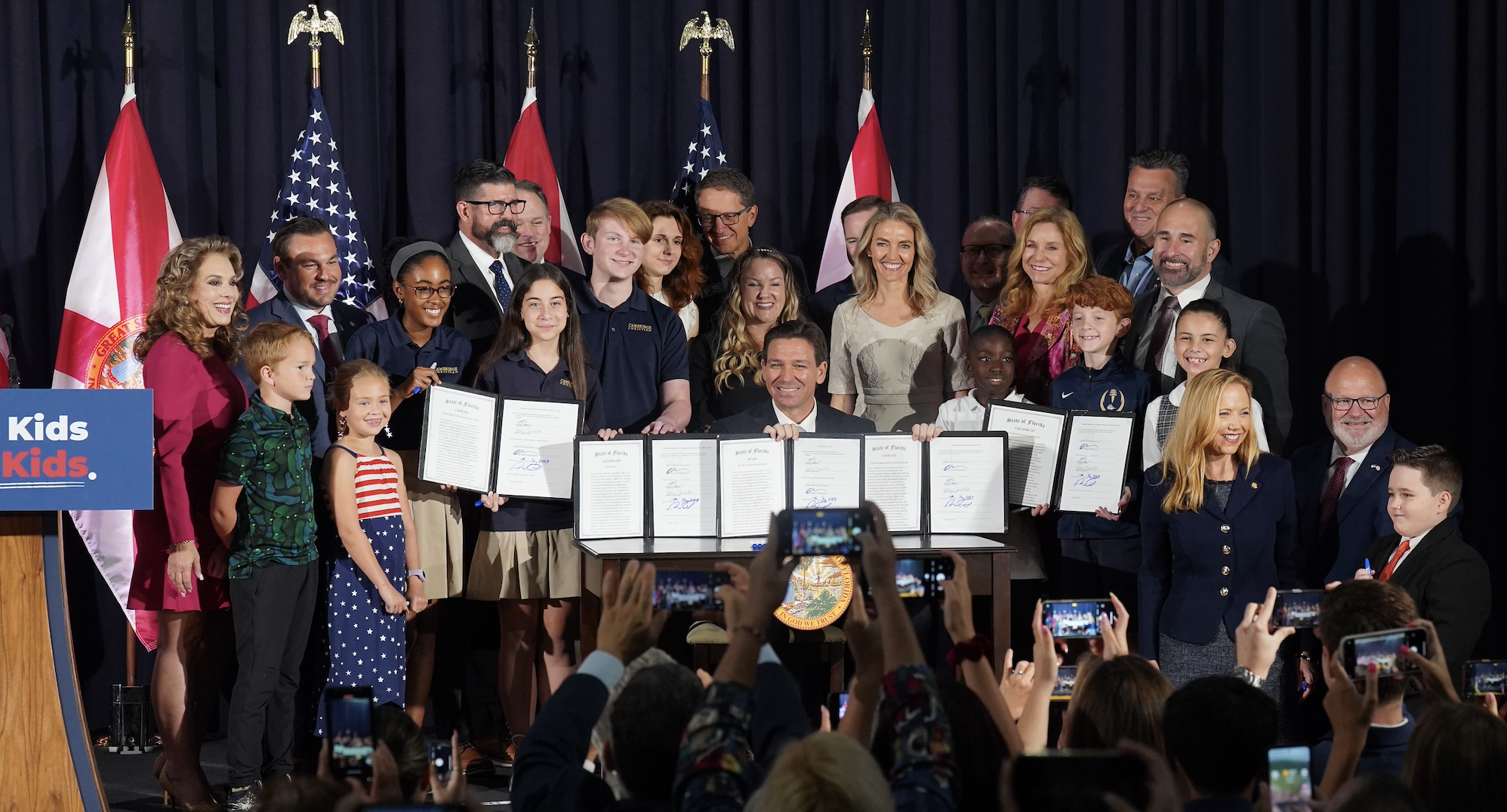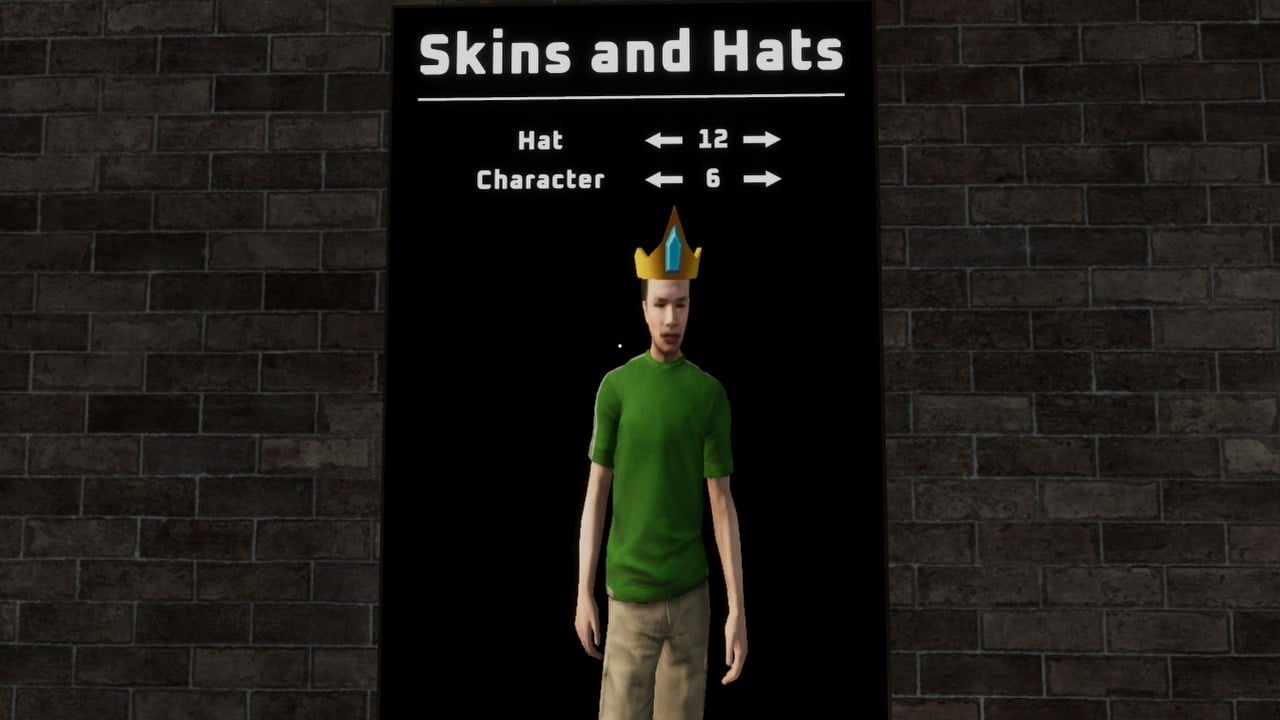In one of the most consequential lawsuits ever filed in defense of the freedom to read, six major publishers, the Authors Guild, and several best-selling authors have joined with Florida students and parents to file a federal lawsuit challenging the constitutionality of two provisions of the state’s recently enacted law, HB 1069. The lawsuit argues that the vague and overbroad law has led to the unlawful removal of hundreds of books from school and classroom libraries across the state. (Authors who have joined the lawsuit include Julia Alvarez, Laurie Halse Anderson, John Green, Jodi Picoult, and Angie Thomas.)
Specifically, the Aug. 29 lawsuit challenges two parts of Section 1006.28 of the law: first, it generally prohibits books in public schools that contain content that “describes sexual conduct,” and second, it prohibits books with allegedly “pornographic” content “without considering the book as a whole, as the Supreme Court requires.” The lawsuit was filed in the Middle District of Florida in Orlando, with all five major publishers (Hachette, HarperCollins, Macmillan, Penguin Random House and Simon & Schuster) and Sourcebooks (which is majority owned by PRH but operates independently) joining as plaintiffs.
“House Bill 1069 violates the First Amendment rights of publishers, authors, and students by forcing teachers, media specialists, and their school districts to remove books or face penalties, including loss of license,” the lawsuit states. “The publisher plaintiffs and the author plaintiffs … have a First Amendment right to distribute and have read their constitutionally protected books, and the student plaintiffs … have a First Amendment right to receive and read constitutionally protected books free from unconstitutional content restrictions imposed by the State of Florida. The plaintiffs bring this action to protect their fundamental rights and the First Amendment rights of others.”
The lawsuit seeks two declaratory judgments from the court. The first is that the ban on content “describe[ing]sexual conduct” that applies to grades K-12 in HB 1069 is “overly broad” and thus unconstitutional. The second is that the vague term “pornographic” in section 1006.28 of the law is either “synonymous” with the “harmful to minors” standard defined in Florida law, which is appropriately based on the Supreme Court’s standard for obscenity established in Miller v. California, or, failing that, a ruling that the undefined ban on “pornographic” content is unconstitutional. The lawsuit does not challenge other provisions of the law or the state’s previous standard that “content harmful to minors” is permissible.
“Plaintiffs do not challenge the ‘harmful to minors’ standard and do not seek to prevent Florida school districts from ensuring that school libraries do not contain obscene books,” the lawsuit states. “Instead, plaintiffs object to the removal of books under the guise of ‘pornography’ that are not remotely obscene, which is due to the Florida State Board of Education’s unconstitutional interpretation of the term ‘pornographic.'”
In the first paragraph of the complaint, the plaintiffs point out that classic books such as Maya Angelou’s I know why the trapped bird sings; Ralph Ellison The Invisible; Ernest Hemingway Whose bell tolls; Zora Neale Hurston’s Their eyes watched God; Aldous Huxley’s Brave new world; Toni Morrison’s Very blue eyes; Leo Tolstoy Anna Karenina; Richard Wright’s Only Begotten Son; Kurt Vonnegut’s Slaughterhouse Five; and Alice Walker’s The colour purple “are some of the many books” that have been removed from school libraries because of the law.
“These books are timeless classics, known for their literary merit,” the lawsuit states. “They have been on school library shelves for years and are not obscene in the slightest. Yet Florida has required these and other books to be removed from school libraries based on its comprehensive, content-based regulations that prohibit evaluation of the books’ quality or value.”
Florida Governor Ron DeSantis signed HB 1069 into law in May 2023 as part of a series of bills defining his so-called “Let Kids Be Kids” agenda. But critics of the law say its vague language has led to widespread book bans in schools across the state.
The lawsuit comes after a group of Florida public school parents and students, along with the ACLU, filed suit in June alleging that the law’s content review procedures discriminate against parents who speak out against book bans and censorship. It is one of several lawsuits filed by publishers currently pending in federal court, including suits in Arkansas, Iowa, Texas and Escambia County, Florida.
“As publishers committed to protecting free speech and the right to read, the rise in book bans across the country continues to require our collective action,” the six publishers involved said in a joint statement. “Fighting unconstitutional laws in Florida and across the country is a top priority. We stand steadfastly with educators, librarians, students, authors and readers – everyone deserves access to books and stories that showcase diverse perspectives and viewpoints.”




